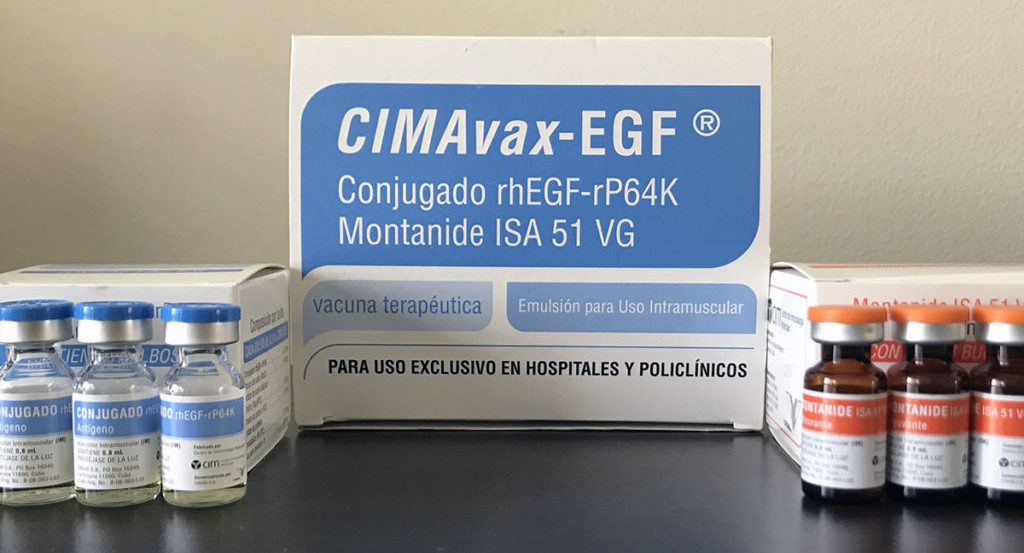Although he fears to speak openly about the relationship between his illness and the general care provided by Cuba's health services, Miguel Pedroso says he has no doubt that there is a gulf between what is being purported and reality. Diagnosed with lung cancer a year and a half ago, he does not remember a single time in which he has received all the medications his treatments require.
"I read what is published in the press, and I can only conclude that I live in a different country." Pedroso questions accounts in the official media, which claim medical advances made in the country against the disease. "They have not helped me, at least," he complains.
In October of last year the 4th International Biomanufacturing Challenges of Immunotheraphy Congress (BIOMIT 2019) was held on the island, where Cuban medical authorities explained their advances in the production of monoclonal glycoproteins and antibodies through the Molecular Immunology Center (CIM).
"At the CIM we have, for many years, approved a monoclonal antibody called CIMAher (nimotuzumab) for different types of cancer. It is approved for cancer of the head, neck, glioma, the esophagus and pancreas," said Belinda Sánchez, the director of the Tumor Immunology area at the CIM.
But, like Miguel Pedroso, former Math teacher Darío Suárez, also diagnosed with lung cancer, has barely any information on CIMAvax-EGF, the first therapeutic vaccine registered against cancer, and has not been included in the program to benefit from it, although the CIM states that "more than 5,000 Cubans have benefited."
"It is difficult to know whether this is because they have not produced enough vaccines for each patient, your file has been misplaced, or the vaccine is actually exported. The doctors do not give you any information about it. In any case they explain to you that the frequent changes in your medications work, even if you are in great pain," says Suarez.
A 2016 report revealed that the La Pradera International Health Center offered CIMAvax as part of its health services to foreigners. The report stated that an American patient obtained an eight-month supply of this vaccine for an approximate cost of $10,000.
Lung cancer is one of the most devastating kinds in Cuba, with a mortality rate of 50% one year after detection. The Ministry of Public Health has just reported that it is the leading cause of death on the island, in both women and men.
"The patient's quality of life depends on a set of elements, and the availability of the medication and strict compliance with the doses to be administered are, without a doubt, determining factors," said Dr. Daniel, an oncologist, when asked about the consequences of the shortage of the cancer drug on the island.
"It is not possible to confirm the effects of the decline in the production and importation of cancer drugs in the country. It is a totally taboo issue. In general, patients are not informed about alternative medications when their course of treatment is interrupted due to a lack of what they had been prescribed," said the oncologist, who did not wish to be fully identified.
Cancer is almost "a political issue" and "doctor-patient conversations about it are prohibited," agreed three other oncologists who refused to give further statements, even anonymously.
"The care the doctors provide is good, but the information given patients about interruptions in courses of treatment, and changes in medications, due to shortages spoil the most important thing: the patient's quality of life," says Migdalia Muñiz, diagnosed with cervical cancer almost 10 years ago, referring to vaccines, an important part of immunotherapy, according to MINSAP authorities.
"My medication cycle is frequently interrupted by a lack of the monoclonal antibody called CIMAher, something I know thanks to years of friendship with my doctor," said Muñiz.
Almost all medications for cancer treatment are administered at the hospital level. A tour of several pharmacies confirmed that only two cancer-related medications are marketed in these networks: morphine and Vidatox, the latter derived from blue scorpion toxin (rhopaluris junceus), and highly effective in treating the symptoms of many types of cancer.
Although in all the pharmacies consulted they reported that there had been no interruptions in their distribution, their managers are not sure whether this stability will continue, after recent announcements of job cuts at the state group BioCubaFarma.
Last week BioCubaFarma confirmed the "relocation" of workers from AICA Laboratories due to a lack of raw materials, which has cut drug production levels.
A source at the Provincial Directorate of Health in Havana stated that the number of drugs suffering shortages could very well exceed 150 in the next three months. Since 2016 BioCubaFarma has recognized shortages "due to financial situations" at the cytostatic production plant. As it does with regards to almost everything, the government, meanwhile, blames these problems on the US embargo.
